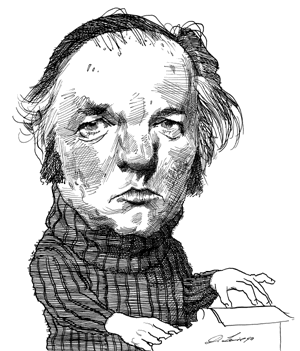Against the facts
'If we look at a person, we are bound in a short space of time to say what a horrible, what an unbearable person. If we look at Nature, we are bound to say, what a horrible what an unbearable Nature. If we look at something artificial--it doesn't matter what the artificiality is--we are bound to say in a short space of time what an unbearable artificiality. If we are out walking, we even say after the shortest space of time, what an unbearable walk, just as when we are running we say what an unbearable run, just as when we are standing still, what an unbearable standing still, just as when we are thinking what an unbearable process of thinking. If we meet someone, we think within the shortest space of time, what an unbearable meeting. If we go on a journey, we say to ourselves, after the shortest space of time, what an unbearable journey, what unbearable weather, we say, says Oehler, no matter what the weather is like, if we think about any sort of weather at all. If our intellect is keen, if our thinking is the most ruthless and the most lucid, says Oehler, we are bound after the shortest space of time to say of everything that it is unbearable and horrible. There is no doubt that the art lies in bearing what is unbearable and in not feeling that what is horrible is something horrible. Of course we have to label this art the most difficult of all. The art of existing against the facts, says Oehler, is the most difficult, the art that is the most difficult.'
from Walking
